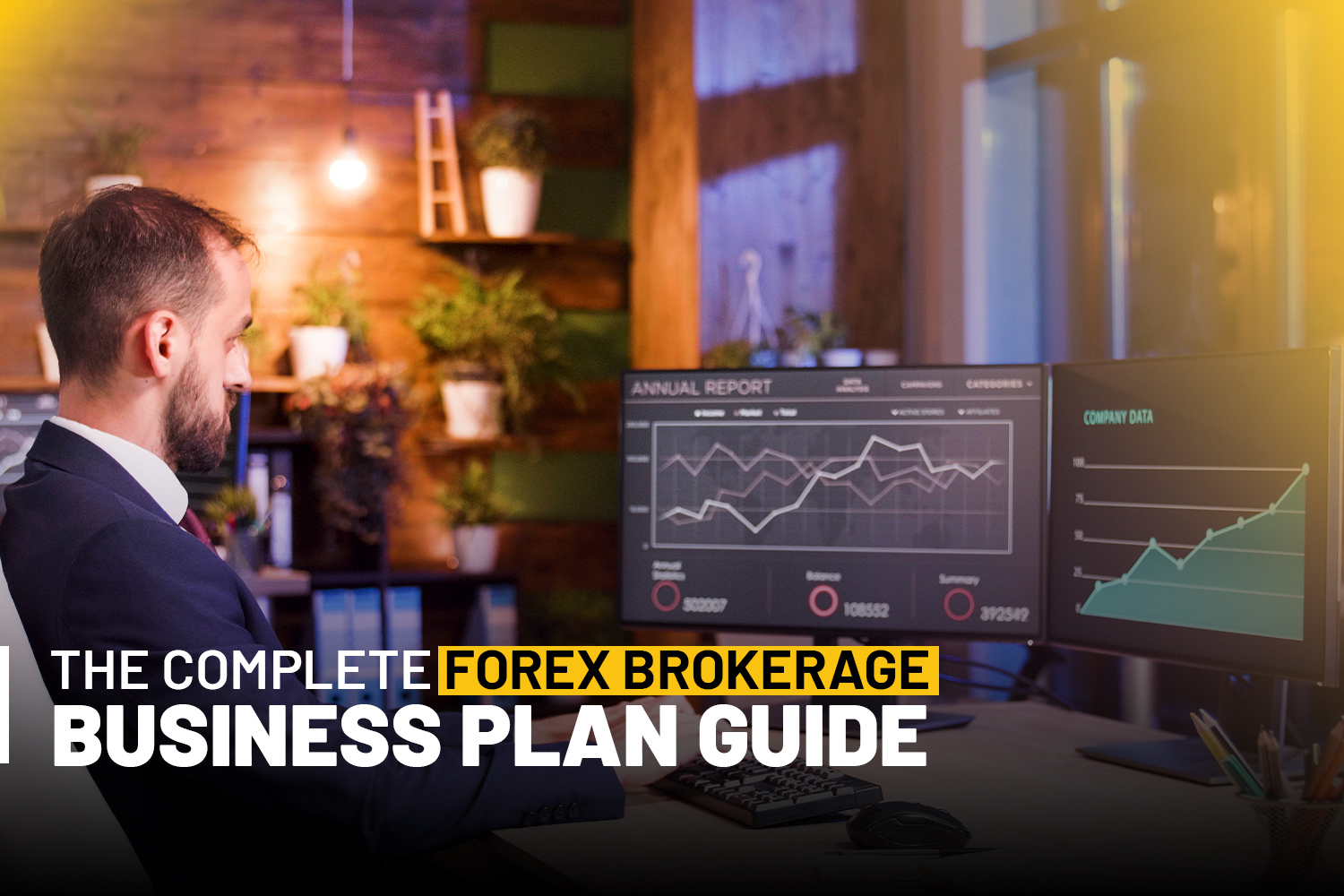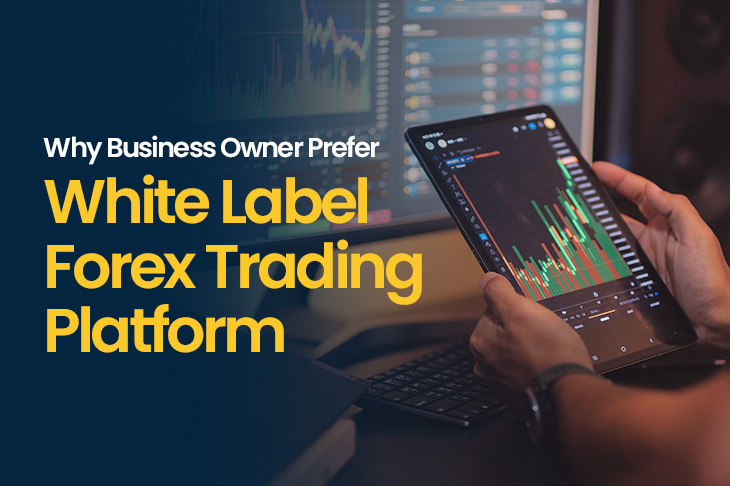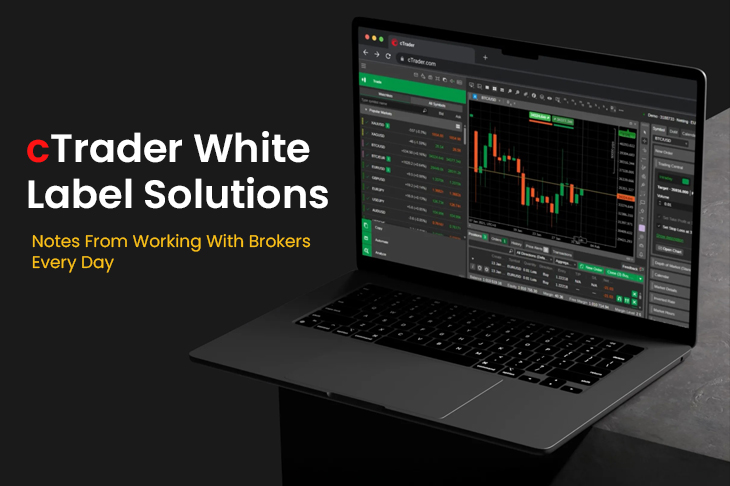forex liquidity provider
Introduction - Starting Your Own Forex Brokerage
Forex brokerage is the business of facilitating currency trading for retail and institutional clients. A Forex broker enables traders to buy and sell in forex market. This role involves offering trading platforms, market analysis, access to liquidity providers, and much more. In this guide by YaPrime, a leading forex liquidity provider, we will learn all about starting your own forex brokerage, explore the forex business plan, forex regulations, and forex business opportunities. Let’s get started

Why Forex Brokerage?
Forex brokerage is an attractive business venture for several reasons. The Forex market is said to be the world’s largest financial market with the most flexible liquidity; it has crossed a daily trading volume of more than $6 million. Additionally, it provides opportunities for traders to profit in both rising and falling markets, making it versatile and appealing to a wide range of investors.
If you are looking to Start a Forex brokerage Firm, YaPrime is your partner in achieving your dream of your own Forex brokerage business. We provide the best forex liquidity and platform to build your own forex brokerage easily. Explore YaPrime to learn more about us.
The Forex Market Basics
The Forex market, also known as the foreign exchange market, is where the world's currencies are bought and sold. It is a decentralised market, meaning it has no central exchange or physical location. Instead, it operates electronically, 24 hours a day, across various financial centres worldwide, making it accessible to traders at almost any time.
- Currency Pairs: Currencies are quoted in pairs. The base currency is the first currency in a pair, and the quote currency is the second. The exchange rate indicates the amount of the quoted currency required to purchase one unit of the base currency. In the EUR/USD pair, for example, EUR is the base currency and USD is the quote currency. If the EUR/USD exchange rate is 1.1000, it means 1 euro can be exchanged for 1.1000 US dollars.
Forex Market Participants
The Forex market comprises various participants, including:
- Retail Traders: Individuals or small businesses who speculate on currency movements.
- Institutional Traders: Large financial institutions, such as banks and hedge funds, trade currencies on behalf of their clients.
- Central Banks: They engage in currency trading to stabilise their nation's currency and economy.
- Forex Brokers: These are the intermediaries, like you, who connect retail traders to the market.
Market Drivers
Understanding what drives currency movements is essential. Factors include:
- Economic Indicators: Data like GDP, employment figures, and inflation rates.
- Geopolitical Events: Political instability can influence currency values.
- Interest Rates: Higher rates can attract foreign capital, strengthening a currency.
- Market Sentiment: News, rumours, and speculation can drive market sentiment.
Trading Sessions
The Forex market operates 24 hours a day, but it's not always equally active. It's divided into three main trading sessions:
- Asian Session: Tokyo is the primary market in this session.
- European Session: London is the main financial hub.
- North American Session: New York dominates this session.
These sessions overlap, ensuring that the market is active during most of the day.
Leverage and Margin
One of the most distinctive features of Forex trading is leverage. It enables traders to manage a huge position with a small quantity of capital. However, it's essential to understand that leverage magnifies both profits and losses, making risk management crucial.
Regulatory Requirements and Compliance
In the world of Forex brokerage, regulatory requirements and compliance are of utmost importance. This section will guide you through the complex landscape of regulations that govern the Forex industry.
Why Regulation Matters
Regulation is crucial for several reasons:
- Investor Protection: Regulations aim to protect traders and investors from fraudulent or unscrupulous practices. This instils confidence in the market.
- Market Integrity: Regulations ensure that the market functions fairly and transparently, preventing market manipulation and abuse.
- Market Integrity: Regulatory bodies monitor and maintain market stability, which is essential for long-term growth and investor trust.
Forex Regulatory Bodies
Regulatory oversight varies from one country to another, and often, multiple bodies oversee Forex activities. Some prominent regulatory bodies include:
- Financial Conduct Authority (FCA): Regulates Forex brokers in the UK.
- Commodity Futures Trading Commission (CFTC): Regulates Forex brokers in the United States.
- Cyprus Securities and Exchange Commission (CySEC): Regulates Forex brokers in Cyprus, a popular destination for brokerage firms.
- Australian Securities and Investments Commission (ASIC): Regulates Forex brokers in Australia.
Forex Brokerage Compliance Requirements
To meet regulatory standards, Forex brokerages must adhere to various compliance requirements, including:
- Capital Adequacy: Brokerages are often required to maintain a minimum amount of capital to ensure financial stability.
- Client Fund Protection: Segregating client funds from company funds is a common requirement to safeguard clients' money.
- Anti-Money Laundering (AML): Brokers must have AML procedures in place to prevent money laundering.
- Know Your Customer (KYC): Verifying the identity of clients is essential to prevent identity theft and fraud.
- Risk Disclosure: Providing risk warnings to clients ensures they understand the potential risks of Forex trading.
- Trade Reporting: Brokers often need to report trading activity to regulatory authorities.
Cross-Border Regulations
If you plan to operate internationally, you'll need to navigate the complexities of cross-border regulations. This involves complying with the regulations of both your home country and the countries where you have clients.
The Role of Technology
Technology is the backbone of modern Forex trading. It affects every aspect of your brokerage, from trade execution to client management. This is how its important:
- Trading Infrastructure: Your trading servers and infrastructure need to be robust and reliable to ensure fast execution and minimal downtime.
- Trading Platforms: The user-friendly interface that traders use to access the market. MetaTrader 4 (MT4) and MetaTrader 5 (MT5) are some of the most popular trading platforms.
- Risk Management Tools: Technology provides tools to monitor and manage risk, including stop-loss and take-profit orders.
- Data Analysis: Big data and analytics help traders make informed decisions based on market trends.
How to Choose Trading Platforms for Your Forex Brokerage Firm?
Choosing the right forex trading platform is a critical decision for your brokerage. Here are some factors to consider:
- Customisation: Some platforms allow extensive customisation, which can help you create a unique trading experience for your clients.
- Compatibility: Ensure that the platform you choose is compatible with various devices, including desktops, smartphones, and tablets.
- Charting Tools: Rich charting features are essential for traders to perform technical analysis.
- Execution Speed: Fast execution of orders is crucial to retaining clients.
Forex Brokerage Business Models
Choosing the right business model is a pivotal decision for your Forex brokerage. This section will examine various business models and their implications.
Market Maker vs. ECN/STP
Market Maker: In this model, the broker acts as the counterparty to the client's trades. The broker sets its own prices and spreads and may take the opposite side of a client's trade. This model can offer more control over pricing but may raise concerns about conflicts of interest.
ECN/STP (Electronic Communication Network/Straight Through Processing)
Brokers operating under this model route client orders directly to the interbank market, offering transparency and potentially tighter spreads. The broker earns revenue from commissions. This model can enhance trust but requires advanced technology and strong liquidity provider relationships.
White Labeling and White-Label Solutions
A white-label Forex brokerage is one that partners with a larger broker to use its technology and liquidity. This model is quicker to set up and can reduce operational costs, but it may limit your branding and control over certain aspects of the business. YaPrime provides one-of-a-kind white-label solutions for your forex brokerage that you can implement by consulting our forex experts.
Hybrid Models
Some brokerages opt for hybrid models that combine elements of both market-making and ECN/STP. This approach allows flexibility in offering various account types to cater to different client preferences.
Technology Investment
The choice of business model often involves technology investment. ECN/STP models, for example, require substantial investments in trading infrastructure, liquidity providers, and server hosting. Market-making models may prioritise investment in pricing and risk management technology.
Regulatory Considerations
Your choice of business model can impact regulatory compliance requirements. It's essential to understand how your selected model aligns with the regulations in your target market.
Choosing Forex Liquidity Providers
Forex Liquidity providers play a pivotal role in the operation of a Forex brokerage. In this section, we will explore what liquidity providers are and how to select the right ones for your business.
What Are Liquidity Providers?
Liquidity providers are financial institutions, typically large banks, financial companies, or even other brokerages like YaPrime, that offer access to a pool of assets for trading. These assets can include various currency pairs, commodities, and other financial instruments.
The Importance of Liquidity Providers
The quality and reliability of liquidity providers can significantly impact your brokerage. Here are some reasons why choosing the right liquidity providers is crucial:
- Trade Execution: High-quality liquidity providers, like YaPrime, offer faster trade execution and tighter spreads, which can attract more clients to your platform.
- Market Depth: A good liquidity provider provides access to deep and diverse markets, ensuring that your clients can trade various currency pairs and instruments.
- Pricing: The pricing offered by your liquidity providers influences your spreads and profitability. Competitive pricing can set you apart from other brokerages.
To learn more about starting your forex business, contact YaPrime, your leading provider of forex brokerage solutions.
Partner with YaPrime and Build Your Own Forex Brokerage
YaPrime has an expert team of forex trading professionals who have extensive knowledge of running a successful forex brokerage company. We provide everything needed to build your forex company, from premium bespoke forex solutions, forex white label solutions, CRM and API integration solutions, and marketing services to personal forex advisors forex business resources , and more. With us, you can rule the forex industry and revolutionise the forex trading experience. Contact us today and get personalised forex brokerage solutions.




